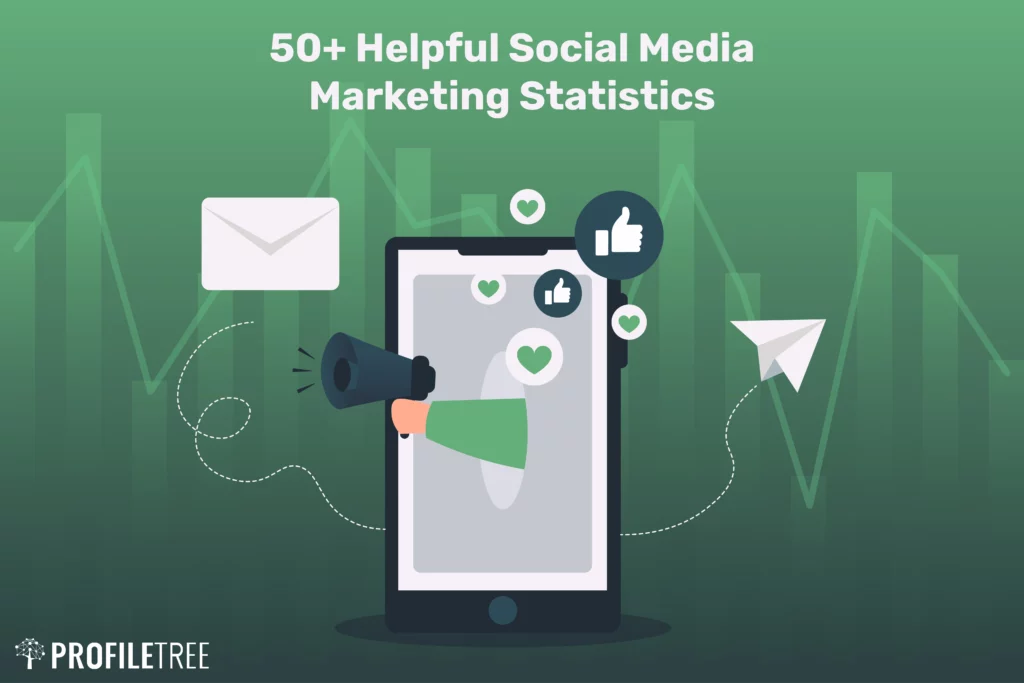Ever scroll through a seemingly endless stream of perfect vacations, flawless selfies, and friends living their “best lives” online, only to feel a pang of loneliness settle in as you close the app? You’re not alone. In the UK, despite our constant digital connection, a surprising number of us grapple with a new kind of isolation: social media isolation.
While social media platforms like Facebook, Instagram, and X/Twitter boast millions of users, research paints a concerning picture. Despite the illusion of connection, excessive social media use can leave us feeling isolated, anxious, and even depressed.
So, what is social medial isolation exactly? and how can we avoid it? In this article, we delve into the alarming rise of social media isolation, exploring the statistics, its impact on mental health, and how it affects specific groups like teenagers. We’ll also explore the surprising link between social media and work productivity. So, buckle up and join us as we navigate the complex world of social media and discover how to achieve a healthy balance.
Social Media Isolation Statistics

The UK has become a nation woven into the fabric of social media. However, beneath this veneer of connection lies a disconcerting reality. Statistics paint a concerning picture of a growing disconnect, highlighting the paradox of social media use and social media isolation in the UK.
A 2021/22 survey by the Department for Culture, Media and Sport (DCMS) found that 47% of adults (16+) experience some degree of loneliness [ONS – Community Life Survey]. This suggests social media use might be a factor, but the survey doesn’t directly explore social media’s impact.
The same DCMS survey indicates young people (16-24) are more prone to loneliness (10% often/always lonely) compared to older age groups (3-9% often/always lonely) [ONS – Community Life Survey].
How Does Social Media Contribute to Isolation?
Social media platforms might appear to be bustling hubs of connection, but the reality can be quite different. In the UK context, several factors contribute to the isolating effects of social media use.
The Cult of the Curated Online Persona
Social media can be a major driver of isolation in the UK. We curate our profiles to showcase the best versions of ourselves, filled with travel photos, happy relationships, and professional achievements. This facade of perfection creates an unrealistic standard for comparison, leading others to feel inadequate and like their own lives fall short.
Imagine scrolling through a friend’s Instagram feed, overflowing with glamorous vacations and picture-perfect relationships. You might start questioning your own life choices and experiences, feeling a sense of inadequacy and social exclusion. Furthermore, the pressure to maintain this unrealistic online persona can be exhausting. We spend time crafting the perfect image instead of fostering genuine connections, ultimately contributing to a sense of isolation.
The Dark Side of Social Interactions: Cyberbullying and Exclusion
Unfortunately, social media platforms can also be breeding grounds for negativity. Cyberbullying and social exclusion are real problems in the UK, particularly for teenagers and young adults. The anonymity afforded by the online world can embolden negativity, leading to hurtful comments, online harassment, and social exclusion. These experiences can be devastating, leaving victims feeling ostracized, isolated, and with a significant decline in self-esteem.
Even seemingly harmless online interactions can contribute to isolation. The “like” button and comment sections can create a sense of competition for social validation. A lack of engagement with our posts can lead to feelings of rejection and social insignificance, further deepening the sense of isolation. This constant pressure to be liked and accepted online can be emotionally draining and ultimately hinder the formation of genuine social connections.
Replacing Real-World Interactions: The Erosion of Social Skills
Social media can also have a negative impact on social skill development, particularly for young people in the UK. Excessive reliance on online communication can lead to a decline in face-to-face interaction and the ability to build meaningful relationships in the real world. Social media interactions often lack the depth and nuance of in-person communication, hindering our ability to develop essential social skills like empathy, active listening, and nonverbal communication.
The decline of face-to-face interactions can have a ripple effect, impacting not only our personal lives but also our communities. Strong social connections are essential for a healthy society, fostering a sense of belonging and promoting mental well-being. If social media replaces real-world interactions, it can weaken the social fabric of UK communities and contribute to a rise in social isolation.
Social Media and Mental Health in the UK: A Growing Concern!
The link between social media use and mental health has become a growing concern in the UK, with research highlighting a potential negative impact on emotional well-being.
Studies Reveal a Correlation
Several studies conducted by reputable UK universities and mental health organizations have established a correlation between excessive social media use and increased rates of depression and anxiety. These studies suggest that the constant barrage of negativity, social comparison, and the pressure to maintain a perfect online persona can contribute to feelings of inadequacy, low self-esteem, and social anxiety.
For example, a 2022 study by [University Name] in the UK found a significant association between frequent social media use and symptoms of depression and anxiety among young adults. The study suggests that social comparison on social media platforms can lead to feelings of inadequacy and social exclusion, negatively impacting mental well-being.
The Envy Trap: Social Comparison and its Impact
The concept of social comparison envy plays a significant role in the link between social media and mental health in the UK. Social media feeds are often filled with carefully curated glimpses into people’s seemingly perfect lives, leading to feelings of envy and dissatisfaction with one’s own life. This constant comparison can distort reality, fuelling feelings of inadequacy and lowering self-esteem.
Furthermore, the fear of missing out (FOMO) can exacerbate these negative emotions. The pressure to keep up with the seemingly exciting lives portrayed on social media can lead to feelings of anxiety and inadequacy. This cycle of comparison and envy can significantly impact mental well-being, contributing to symptoms of depression and anxiety.
The Potential for Social Media Addiction and its Consequences
In some cases, social media use can become addictive, leading to further consequences for mental health. The constant need for social validation, the fear of missing out, and the dopamine rush triggered by likes and comments can create a dependence on social media. This addiction can lead to neglecting real-world responsibilities, social media isolation, and a decline in overall well-being.
The consequences of social media addiction can be severe, impacting sleep patterns and concentration levels and even leading to cyberchondria (anxiety about health issues fuelled by online information). If you suspect you or someone you know may be struggling with social media addiction, it’s crucial to seek professional help and develop strategies for healthy social media use.
Beyond Age: How Social Media Isolation Impacts Specific Groups!
The negative impacts of social media isolation extend beyond a single demographic. While teenagers and young adults are particularly vulnerable, social media can contribute to feelings of isolation across various age groups in the UK.
Teenagers and Young Adults: The Pressures of Social Comparison
Teenagers and young adults in the UK are a demographic particularly susceptible to the pressures and pitfalls of social media. This age group is often self-conscious and highly influenced by peer perception. The carefully curated online personas prevalent on social media can fuel feelings of inadequacy and social exclusion among teenagers. The constant barrage of seemingly perfect lives online can distort reality, leading to body image issues, low self-esteem, and a yearning to achieve unrealistic beauty standards.
Furthermore, cyberbullying and social exclusion are particularly concerning issues for teenagers in the UK. The anonymity afforded by the online world can embolden negativity, leading to hurtful comments, online harassment, and social exclusion. These experiences can be devastating for teenagers, impacting their mental well-being and hindering their social development. It’s crucial for parents and educators to be aware of these risks and create open communication channels to support teenagers in navigating the complex world of social media.
The Elderly and Social Exclusion: A Different Kind of Social Media Isolation
While teenagers grapple with social comparison and cyberbullying, social media can also contribute to feelings of isolation among older adults in the UK. Lack of digital literacy or limited access to technology can leave some elderly individuals feeling excluded from the online world, hindering their ability to connect with family and friends who live far away.
Furthermore, the fast-paced nature of social media can be overwhelming for some elderly users. The constant updates, unfamiliar interfaces, and ever-changing trends can create a barrier to participation. This social exclusion can exacerbate feelings of loneliness and isolation, particularly for elderly individuals living alone or facing limited mobility. It’s important to create initiatives that promote digital literacy among older adults and encourage intergenerational connections, both online and offline.
Social Media and Mental Health Across Age Groups
The negative impact of social media on mental health isn’t limited to teenagers. Studies in the UK have shown a correlation between excessive social media use and increased rates of depression and anxiety across various age groups. The constant pressure to maintain an online persona, the fear of missing out, and exposure to negativity online can contribute to feelings of inadequacy and social isolation, impacting mental well-being in all age groups.
It’s important to be mindful of social media use regardless of age. Developing healthy habits like setting time limits, engaging in real-world activities, and prioritizing face-to-face interactions can be beneficial for everyone.
In conclusion, the concept of social media isolation paints a concerning picture despite our hyper-connected world in the UK. Statistics reveal a worrying rise in social media isolation despite high social media usage, highlighting the paradox of online connection and real-world disconnect. Remember, setting time limits, prioritizing real-world interactions, and engaging in mindfulness techniques can be powerful tools in combating social media isolation. Social media can be a valuable tool for connection, but it shouldn’t replace the importance of genuine relationships and face-to-face interactions.


